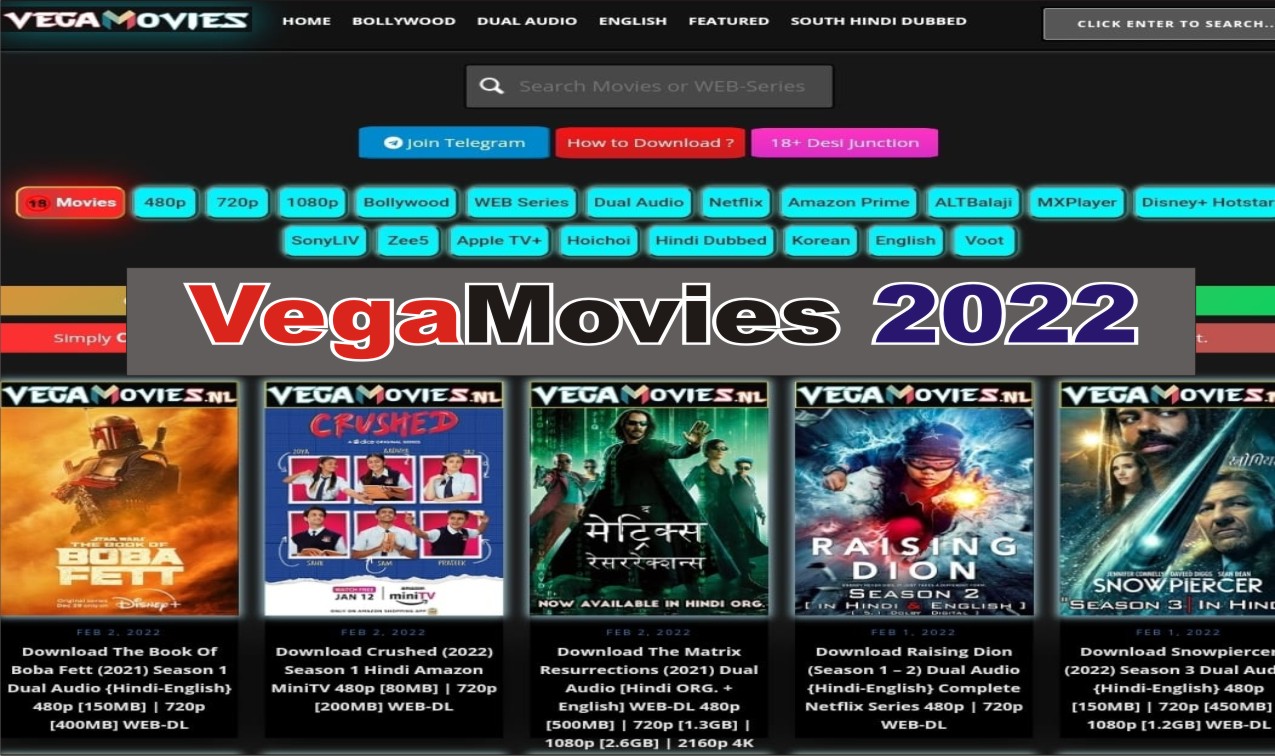No Results? Vegamovies Has Hidden Movie Gems!
Are you tired of endlessly searching, only to be met with the digital equivalent of a shrug? The relentless pursuit of information often dead-ends in a frustrating vortex of no results, leaving us questioning our spelling, our query, and perhaps even our sanity. This digital desert, punctuated by the arid pronouncements of search engines, is a common experience in the vast landscape of the internet.
The internet, for all its promise of boundless knowledge and instant gratification, can be surprisingly opaque. We expect answers, readily available and easily digestible. Instead, we are frequently confronted with the stark reality of inadequate data, poorly indexed content, or simply the absence of the specific information we seek. This phenomenon extends beyond simple search queries; it permeates our interactions with various online platforms, from e-commerce sites to streaming services. The digital age, despite its advancements, has yet to fully conquer the challenges of information retrieval and user experience.
The ubiquitous "We did not find results for:" message has become a symbol of this digital frustration. It is a reminder that the internet, despite its vastness, is not all-knowing. Search algorithms, while sophisticated, are still susceptible to limitations in data availability, indexing errors, and the ever-evolving nuances of human language. Furthermore, the proliferation of content, both legitimate and illegitimate, further complicates the search process, often leading to irrelevant or inaccurate results.
- Somali Telegram Groups 2024 Find Active Channels Now
- Kylie Kelce Accident The Truth Behind The Rumors
The suggestion to "Check spelling or type a new query" is a seemingly simple solution, but it often belies the underlying complexity of the problem. Spelling errors, while common, are not always the culprit. The real challenge lies in crafting precise and effective search terms that accurately reflect our intent. This requires a nuanced understanding of keywords, synonyms, and the specific vocabulary associated with our topic of interest. In many cases, the failure to find results stems not from a lack of information, but from our inability to articulate our needs in a way that the search engine can comprehend.
The mention of "Discover exciting movie titles only available at vegamovies" introduces another layer of complexity. This suggests a potential search for specific content, possibly within the realm of online entertainment. The existence of platforms like vegamovies, which may offer content not readily available through traditional channels, highlights the fragmented nature of the digital landscape. Finding such content often requires navigating a labyrinth of search engines, specialized databases, and online communities, each with its own unique set of challenges and limitations.
The repetition of the "We did not find results for:" message underscores the pervasive nature of this problem. It is not an isolated incident, but a recurring theme in the digital experience. This raises questions about the effectiveness of current search technologies and the need for more intuitive and user-friendly interfaces. As the volume of online content continues to grow exponentially, the challenge of information retrieval will only become more acute.
- Love After Lockup Brittanys New Baby See The Photos Story
- Eminems Family Hailie Alaina Stevie More The Full Story
Ultimately, the experience of encountering "no results" serves as a reminder of the limitations of technology and the importance of critical thinking. It forces us to re-evaluate our search strategies, refine our queries, and explore alternative sources of information. In a world saturated with data, the ability to navigate the digital landscape effectively is a skill that is becoming increasingly essential.
| Category | Information |
|---|---|
| The Problem | The inability to find desired information online, often resulting in "no results" messages. |
| Common Causes |
|
| Typical Solutions Suggested | "Check spelling or type a new query." |
| Example Platform Mentioned | vegamovies (implying a search for specific movie titles) |
| Impact on User Experience | Frustration, time wasted, questioning the validity of information availability. |
| Long-Term Implications | Highlights the need for better search technologies and more user-friendly interfaces as online content grows exponentially. |
| User Action Required | Re-evaluate search strategies, refine queries, explore alternative sources of information, and develop critical thinking skills. |
| Additional Considerations | The search for specific content may require navigating specialized databases, online communities, and niche platforms. |
Consider, for example, the common scenario of searching for a specific research paper. You might know the title, or at least a few key words, and enter them into a search engine like Google Scholar. However, if the paper is behind a paywall, or if the keywords are not accurately indexed, you might be met with the dreaded "We did not find results for:" message. This necessitates a more strategic approach, such as exploring institutional repositories, contacting the authors directly, or using alternative search engines that specialize in academic literature.
Another frequent occurrence is the search for specific products or services online. Imagine you are looking for a particular model of camera. You enter the model number into a search engine, but the results are flooded with irrelevant information, such as reviews of other cameras or advertisements for unrelated products. This highlights the challenge of filtering through the noise and finding the specific information you need. In such cases, it may be necessary to refine your search terms, use advanced search operators, or explore specialized e-commerce platforms that cater to your specific needs.
The issue extends beyond simple search queries to more complex tasks, such as troubleshooting technical problems. Imagine you are encountering an error message on your computer. You copy the error message into a search engine, hoping to find a solution. However, if the error message is not widely documented, or if the relevant information is scattered across various forums and online communities, you might struggle to find a clear and concise answer. This underscores the importance of developing problem-solving skills and knowing how to effectively navigate the digital landscape to find the information you need.
The rise of social media has further complicated the search process. While social media platforms can be valuable sources of information, they are also rife with misinformation, rumors, and unsubstantiated claims. Searching for information on social media often requires a high degree of skepticism and the ability to critically evaluate the source and credibility of the information. It is important to be aware of the potential biases and agendas that may be influencing the content you are encountering.
The challenge of finding information online is not merely a technical problem; it is also a cognitive one. Our brains are not naturally equipped to process the sheer volume of information that is available online. We are constantly bombarded with stimuli, and it can be difficult to filter out the noise and focus on the information that is truly relevant. This highlights the importance of developing skills in information literacy, critical thinking, and effective search strategies.
In conclusion, the "We did not find results for:" message is a common and frustrating experience in the digital age. It serves as a reminder of the limitations of technology and the importance of developing the skills and strategies necessary to navigate the online landscape effectively. As the volume of online content continues to grow, the challenge of finding the information we need will only become more acute. Therefore, it is essential to embrace a critical and strategic approach to search and to continuously refine our skills in information literacy and problem-solving.
Let's consider the ramifications for specific fields. In medicine, the inability to quickly access the latest research or treatment protocols can have serious consequences for patient care. Imagine a doctor in a rural clinic trying to diagnose a rare disease. If they cannot quickly find reliable information online, they may be forced to rely on outdated resources or make decisions based on incomplete information. This underscores the importance of ensuring that medical information is readily accessible and easily searchable, particularly in underserved communities.
In law, the ability to quickly access relevant case law and legal precedents is essential for effective advocacy. Imagine a lawyer preparing for a trial. If they cannot quickly find the relevant legal precedents, they may be at a disadvantage in court. This highlights the importance of ensuring that legal information is well-organized and easily searchable, particularly for lawyers who are representing clients with limited resources.
In education, the ability to quickly access reliable information is essential for both students and teachers. Imagine a student working on a research paper. If they cannot quickly find the relevant sources, they may become discouraged and give up on the assignment. This underscores the importance of teaching students effective search strategies and helping them develop the skills they need to navigate the online landscape effectively.
The issue of "no results" also raises questions about the role of artificial intelligence (AI) in search technology. AI has the potential to revolutionize the way we find information online, by making search engines more intuitive, personalized, and context-aware. However, AI also has the potential to exacerbate existing biases and inequalities. If AI algorithms are trained on biased data, they may perpetuate those biases in their search results. Therefore, it is essential to ensure that AI-powered search engines are designed and used in a way that promotes fairness and equity.
Moreover, the issue of "no results" highlights the importance of preserving and archiving online content. Many valuable resources are lost each year due to website closures, server failures, and other technical issues. This underscores the need for robust digital preservation strategies and the importance of ensuring that online content is accessible for future generations. Libraries, archives, and other institutions have a crucial role to play in preserving and providing access to online content.
Furthermore, the issue of "no results" raises questions about the role of government regulation in the online world. Should governments regulate search engines to ensure that they are providing fair and accurate results? Should governments require websites to meet certain standards of accessibility and usability? These are complex questions with no easy answers. However, it is important to have a public conversation about the role of government in shaping the online landscape.
Ultimately, the "We did not find results for:" message is a call to action. It is a reminder that the internet is not a perfect system and that we all have a role to play in making it more accessible and useful. Whether we are developers, educators, policymakers, or simply users, we can all contribute to improving the online experience. By embracing a critical and strategic approach to search, by supporting initiatives that promote digital literacy, and by advocating for policies that promote fairness and equity, we can help to create a more inclusive and informative online world.
Consider the impact on small businesses. A local bakery, for example, might rely on online searches to attract new customers. If their website is not properly optimized for search engines, or if they are competing with larger businesses with more sophisticated marketing strategies, they may struggle to get their message out. This highlights the importance of providing small businesses with the resources and support they need to compete in the digital marketplace.
Another area of concern is the impact on marginalized communities. People with disabilities, people who speak languages other than English, and people who live in areas with limited internet access may face additional challenges in finding information online. This underscores the importance of designing websites and search engines that are accessible to everyone, regardless of their background or circumstances.
The issue of "no results" also raises questions about the ethics of search engine optimization (SEO). SEO is the practice of optimizing a website to improve its ranking in search results. While SEO can be a legitimate way to attract more traffic to a website, it can also be used to manipulate search results and mislead users. This highlights the importance of promoting ethical SEO practices and ensuring that search engines are providing accurate and unbiased results.
Moreover, the issue of "no results" underscores the importance of developing alternative search technologies. While Google is the dominant search engine, there are other options available, such as DuckDuckGo, which focuses on privacy, and Startpage, which uses Google's search results but does not track users. Exploring alternative search engines can help to diversify the online landscape and promote competition.
In addition, the issue of "no results" highlights the importance of fostering a culture of online collaboration and knowledge sharing. By contributing to online communities, creating open-source resources, and sharing our expertise, we can help to make the internet a more informative and collaborative space. This requires a shift in mindset from viewing information as a commodity to viewing it as a shared resource that benefits everyone.
The implications extend beyond personal frustration and impact professional fields significantly. In journalism, for example, the ability to quickly and accurately verify information is crucial for maintaining credibility. A journalist who cannot find reliable sources to support their reporting may be forced to rely on anecdotal evidence or unsubstantiated claims. This underscores the importance of equipping journalists with the tools and skills they need to navigate the online landscape effectively and to distinguish between credible and unreliable sources.
In scientific research, the ability to access and analyze vast amounts of data is essential for making new discoveries. A researcher who cannot find the relevant data sets may be unable to test their hypotheses or to advance their field of study. This highlights the importance of promoting open access to scientific data and ensuring that researchers have the resources they need to access and analyze that data.
In public policy, the ability to understand complex issues and to make informed decisions is crucial for effective governance. A policymaker who cannot find reliable information about the potential impacts of a proposed policy may be unable to make a sound decision. This underscores the importance of providing policymakers with access to unbiased and evidence-based information.
The "We did not find results for:" message, therefore, is not just a technical glitch; it is a symptom of a deeper set of challenges that we face in the digital age. These challenges include the overwhelming volume of information, the increasing sophistication of misinformation, the persistence of digital divides, and the ethical dilemmas posed by AI and SEO. Addressing these challenges requires a multifaceted approach that involves technological innovation, educational initiatives, policy reforms, and a commitment to ethical principles.
- Arcadia Earthmix Arid Best Substrate For Healthy Plants Animals
- Future Of Iob Internet Of Bodies Tech Breakthroughs

Unveiling The World Of Vegamovies Your Ultimate Movie Streaming

What are Vegamovies? The Ultimate Guide 2023 Smarts Saving

Vegamovies APK Download For Android Latest Version FUNMODAPK.COM